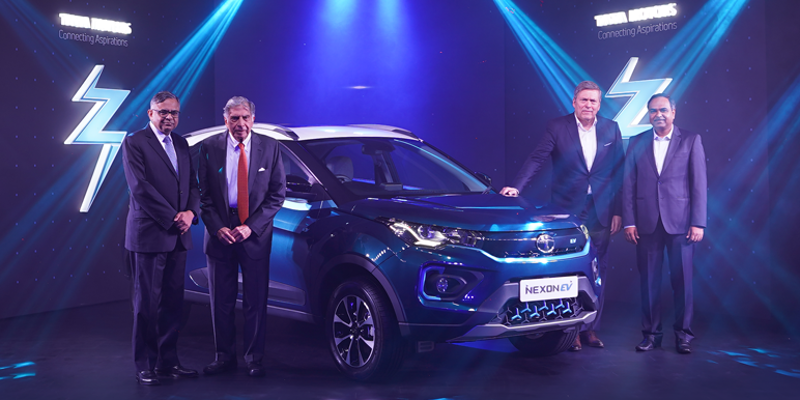Tata Motors launches cheapest electric SUV Nexon EV in India

NEW DELHI: Tata Motors Ltd has launched the Nexon EV with an introductory starting price tag of ₹13.99 lakh (ex-showroom), which is about 6-7 lakh cheaper when compared to the other long-range electric cars on sales in India currently.
The Tata Nexon EV will be available in three variants – XZ+ LUX, XZ+ and XM with top-end variant priced at ₹15.99 lakh, media report says.
While the company forays into the personal electric mobility segment with the Nexon EV, it also marks a shift in it’s a strategy from niche segments such as fleet and taxi to personal applications.
The Nexon EV will also be the first electric vehicle from the stable of Tata Motors to be powered by the in-house developed Ziptron technology, which is a modular electric powertrain platform comprising of permanent magnet AC motor and a dust and waterproof, liquid-cooled lithium-ion battery system.
Nexon EV is powered by a 129 PS permanent magnet AC motor powered by a 30.2 kWh lithium-ion battery. The company claims that the electric motor can produce 245 Nm of instant torque from a standstill as the Nexon EV boasts of acceleration figures of 0-100 in 9.9 seconds.
On the charging side, Nexon EV’s battery can be charged up to 80% within 60 minutes when plugged into a fast DC charger. The EV can also be charged using a regular 15-ampere socket, which would account for a longer charging duration.
Tata Motors plans to retail it’s all-new EV across its 60 dealer outlets in 22 cities. Tata Motors is tapping into the synergies with its group companies that are coming together to set up India’s first EV ecosystem.
This includes Tata Power setting up EV charging network across the country, Tata Chemicals working on battery chemistry, Tata AutoComp on battery packs and other components among others.
Tata Power has already set up a network of about 100 EV charging stations and plans to scale this up to 300 by March 2020, and 650 charging stations by March 2021.

















Facebook Comments